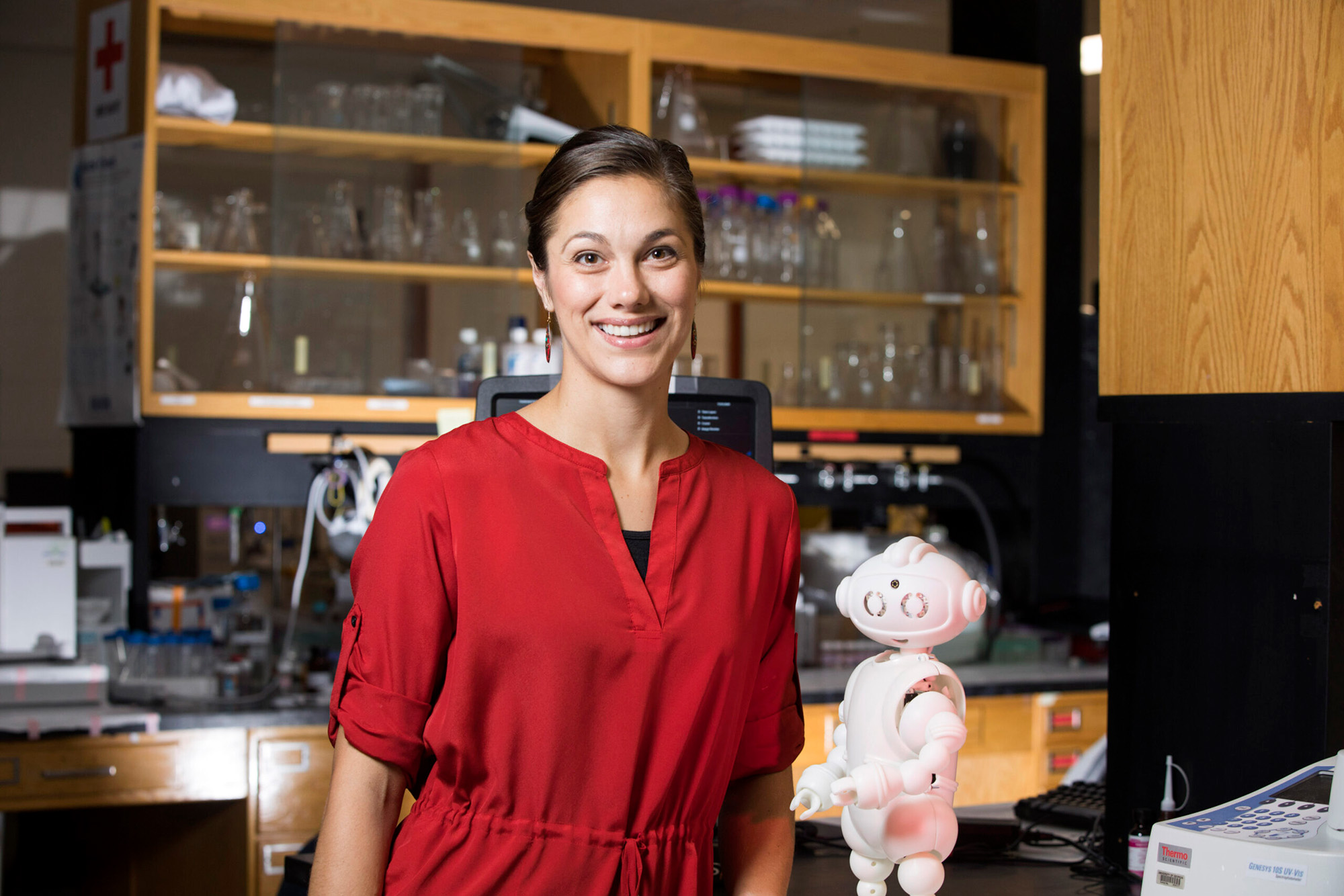Jenay Beer named inaugural Faculty Innovation Fellow
Jenay Beer named inaugural Faculty Innovation Fellow

Originally posted by the UGA College of Public Health, by Erica Techo
A key element of innovation is collaboration, a task Jenay Beer, Associate Professor in the online Graduate Certificate in Gerontology program, is ready to foster.
As an inaugural Faculty Innovation Fellow, Beer will serve as a bridge between her colleagues at the College of Public Health and the University of Georgia’s Innovation District, helping translate big ideas into sustainable, impactful realities. The two-year fellowship involves exploration of the Innovation District’s resources, including courses, funding, networking opportunities and more.
Her mission, she says, is simple but meaningful.
“My goal is to help people become a part of the Innovation District and to help people at the university turn their ideas into something sustainable and impactful,” said Beer, associate professor and associate director of the Institute of Gerontology.
Introducing Faculty Innovation Fellows is an opportunity to connect, or reconnect, with areas across campus, said Chris Rhodes, executive director of the Innovation District. It is a chance to understand what the Innovation District needs to offer to best serve campus, all while Fellows introduce their colleagues to new people and programming.
“The Faculty Innovation Fellows program exists to help the Innovation District better serve the talent of the university, in all colleges,” Rhodes said. “Fellows will help more people see how the District can help them maximize the impact of their work. Jenay has been a creative member of the innovation ecosystem at UGA for years, and we’re really lucky to have her as an inaugural Fellow.”
A key part of this fellowship is listening and learning. Beer will spend the first year of the fellowship talking with faculty, staff and students to better understand what innovation looks like in the College of Public Health, as well as how she can help make it more accessible.
“It’s a discovery process,” she said. “I want to understand how folks define innovation, what draws them to the Innovation District—or keeps them away. There can be confusion over who to go to, for what, and when.”
As someone who has utilized the Innovation District in the past, Beer recognizes that a traditional definition of “entrepreneurship” may feel at odds with a service-oriented field like public health. But it is not limited to building a new product or company, Beer said. Sometimes it is as straightforward as making a program sustainable for the long-term.
“Commercialization may seem daunting, or not public health-oriented, but that’s false,” Beer said. “Finding a way to make public health innovation financially viable leads to sustainability and growth.”
The Innovation District can support researchers in the pursuit of funding and growth, including navigating industry partnerships, scaling projects and developing a plan that is economically viable, and Beer hopes to guide them to the right resources at the right time.
She also wants to help students tap into what the Innovation District can offer. This includes mentorship and valuable skills, ensuring the next generation of the public health workforce has an innovative and entrepreneurial mindset.
In the end, Beer sees her role as a guide and an advocate—someone who helps her colleagues and students find their way forward.
“I’ve learned so much through my own experience with the Innovation District,” she said. “It’s made me a better collaborator and mentor. Now I want to help others feel more confident taking that big jump. This fellowship is really about unlocking the potential that already exists here—and making sure no one feels like they have to do it alone.”
